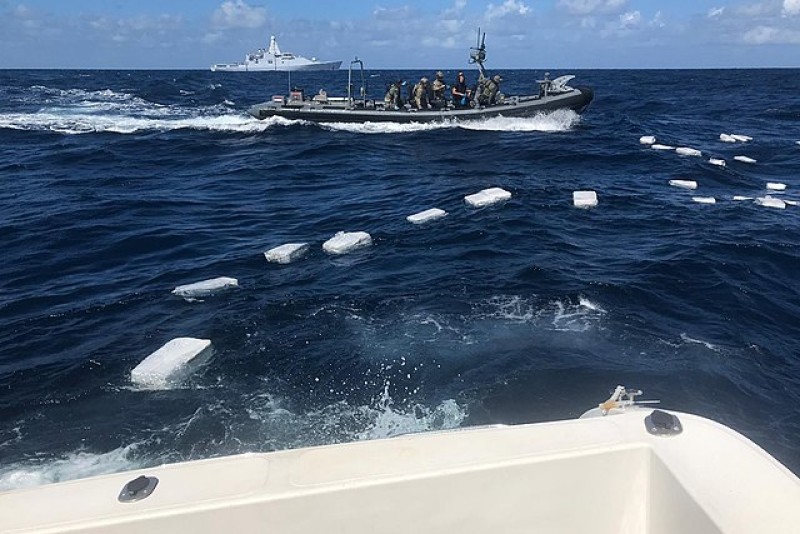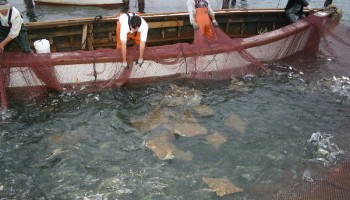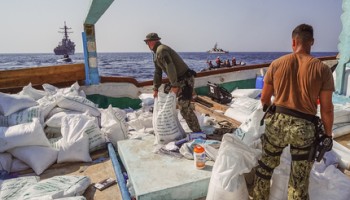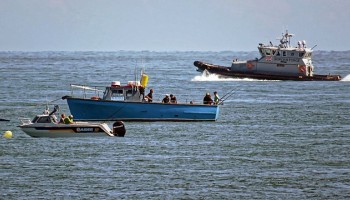Enriquez Oyando and Romeo Santos Hernandez of Mexico; and John Macias Agua, Jaime Velez Arcentales, and Eddy Anchundia Velez of Ecuador; are guilty of conspiracy to traffic felony levels of cocaine while within the jurisdiction of the United States.
The defendants were part of a larger seven-person group that attempted to smuggle 760 kilograms of cocaine from South America into Mexico.
In January last year, the crew were identified by aerial surveillance in international waters more than 200 miles off of Mexico’s southern coast. As a U.S. Coast Guard (USCG) vessel intervened to investigate the traffickers, they were caught trying to jettison their cargo into the sea.
Prosecutors said that the cocaine was bound in such large quantities that they could be more aptly described as bales rather than bricks.
Despite the fact that the traffickers were in international waters south of Mexico when they were detained, the USCG is authorized to enforce U.S. and international law on the high seas.
The defendants from Mexico, however, argued in court that they were in fact victims who had been tricked into participating with the traffickers. The three conspirators from Ecuador, meanwhile, pleaded that they were adrift at sea and were rescued by the drug vessel shortly before the USCG vessel arrived.
Another story was prepared for the jury during the trial, wherein one of the seven co-conspirators not only pleaded guilty, but testified with false information in the hopes of exonerating the other six.
Authorities identify this person as Bran-Lopez, who stated that not only did he deceive his co-defendants into believing that the vessel was instead part of a fishing expedition, but also that his family had been kidnapped.
His testimony was proven false, however, when evidence from the traffickers’ cell phones and GPS data proved the crew were already at sea days before he claimed the kidnapping took place.
Sentencing is scheduled for November later this year; the traffickers face a minimum mandatory penalty of 10 years and potentially up to life in prison.






